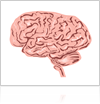It’s not uncommon to think that a person’s hearing is going once they start asking others to repeat themselves. Hearing loss is a common condition that often affects the elderly; however, a new study suggests that this may not be the case. In fact, a decline in a person’s speech-processing abilities in the brain could be the cause.
Researchers at the University of Maryland have discovered that sometimes there is something else going on in the brain of an aging adult. Even if a clinical assessment of their hearing is determined to be normal. This new study was recently published in the Journal of Neurophysiology and was conducted by researchers Alessandro Presacco, Samira Anderson, and Jonathan Z. Simon. What these researchers discovered was that adults between the ages of 61 and 73, who were determined to have normal hearing, scored significantly worse on speech understanding when they were in noisy environments than adults between the ages of 18 and 30 who have normal hearing.
Researchers were able to calculate participants’ ability to understand speech in both settings that were quiet and in noisy environments where more than one person was talking. Also, participants underwent two brain scans to measure the electrical activity present in the cortex and midbrain. What the results showed was that older adults have a harder time tracking a person’s speech in both quiet and noisy environments. It was also discovered that adults also require more time to process acoustic cues, and scored lower on the speech-in-noise comprehension test. Neural deficits in the cortex and midbrain were also reported and were found to be a result of aging.
What these findings show is that the aging brain’s inability to properly understand certain sound signals in different environments. This discovery could be a contributing factor on why aging adults have an inability to hear at certain volumes.
